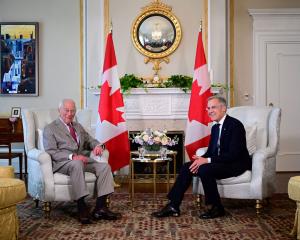Gareth Jones argues that academics occupy an important place within society, a place that is often poorly understood by those outside universities.
I have spent the whole of my working life in universities, three of them in three different countries. This revelation elicits different reactions from different people. For some I have never had a real job in my life, having spent so many years in ivory towers shielded from the harsh realities of ordinary existence. There may be some truth in this.
I have had a very privileged existence, since it has allowed me to follow my own areas of interest, writing and speaking about these, and doing my best to impart understanding and ideas to upcoming generations of students and also to the general public. It has allowed me to travel widely, since the issues with which academics deal are usually international in scope.
Consequently, academics like myself may be far better known in other countries than in their own. Universities have to have an international outlook if they are to survive in the higher echelons of universities worldwide.
However, being an academic is not all light and joy. It is demanding, mainly because expectations are so high. Living by international standards is not always easy and competition is intense. And then there are the disagreements over results, the interpretation of results, differing perspectives on a whole range of ideas and viewpoints, and the ever-present challenge of keeping up to date with concepts and technologies. Academics have to work hard to get research grants and to have their work published in prestigious international journals and with well-known book publishers.
Academics sometimes get a bad press. Not only do they live in ‘‘ivory towers'' but they appear to some to spend their time discussing issues of little relevance to the general public, so esoteric that it is impossible for those outside their area to know what they are talking about. There is an element of truth in this. Academics live by ideas and discuss matters at length, and sometimes tend to get lost in their own worlds. The reality, however,
is that academics frequently challenge conventional ideas, and this can upset those who do not want their cherished ideas threatened (including those in authority). Consequently, academics are not always the easiest of people to have around.
Some dictionary definitions of academics refer to them as ‘‘scholarly'' and ‘‘learned'', but also as having ‘‘no practical or useful bearing''; they may even be described as being ‘‘broadly irrelevant''. Such dictionary definitions appear exceedingly limiting and restrictive when confronted by modern academia. The modern academic bears little resemblance to what are now museum pieces, the once revered encyclopedic professor of 50 and more years ago, when universities were reserved for the elite, and student numbers were strictly limited.
In those days academics educated a relatively select group of individuals, in preparation for being the leaders of society or the practitioners of a limited number of professions. They were also days when education for its own sake was held in high esteem, and when the humanities were appreciated for their contribution to producing a highly educated workforce. Today's universities bear few resemblances to those of the past, as their functioning comes under increasingly precise scrutiny from government agencies.
What then should we expect of academics? First, they are to be people of the utmost honesty and integrity. Once these disappear, as they do in cases of scientific or other scholarly fraud, the essence of academic inquiry is lost.
Second, academics should be continually questioning the status quo. They should always be inquiring and searching, asking awkward questions and being prepared to think the unthinkable, although unfortunately they do not always live by these rigorous standards. Whenever there is an intolerance of different points of view, they undermine their ability to be at the cutting edge of research, scholarship, and professional practice.
Third, academics should be at home in an environment of change. They are always to be on the lookout for new ideas, new ways of doing things, and new ways of expressing what they think or believe. This does not mean that every central truth is thrown overboard, but it does lead to an assessment of what is of lasting value as opposed to what is transient.
The University of Otago outlines what it regards as fundamental value: academic freedom and integrity; equity in employment and educational opportunities; high ethical standards in teaching, research and personal behaviour; and freedom from discrimination. The challenge is to create an ethos in which these are translated into meaningful attitudes and behaviour.
In my view, societies need highly performing universities and academics, just as much as the latter need the support of their societies. We are all diminished when this is not the case.
Gareth Jones is an emeritus professor in the department of anatomy at the University of Otago. He has previously been deputy vice-chancellor (academic) and director of the Bioethics Centre.











